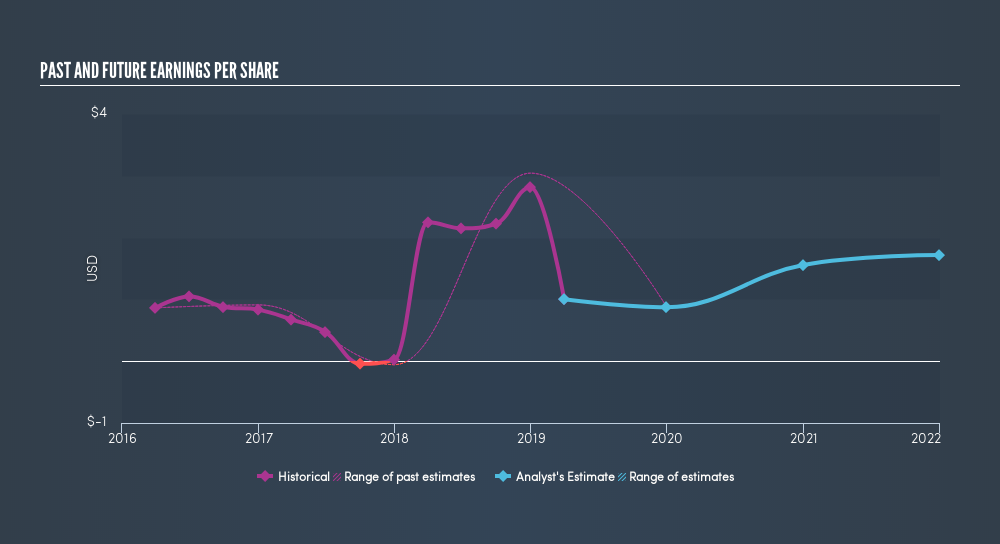- United States
- /
- Capital Markets
- /
- NYSE:VIRT
The Virtu Financial (NASDAQ:VIRT) Share Price Is Down 27% So Some Shareholders Are Getting Worried

Want to participate in a short research study? Help shape the future of investing tools and you could win a $250 gift card!
Investors can approximate the average market return by buying an index fund. But if you buy individual stocks, you can do both better or worse than that. For example, the Virtu Financial, Inc. (NASDAQ:VIRT) share price is down 27% in the last year. That contrasts poorly with the market return of 4.6%. On the bright side, the stock is actually up 22% in the last three years.
Check out our latest analysis for Virtu Financial
To quote Buffett, 'Ships will sail around the world but the Flat Earth Society will flourish. There will continue to be wide discrepancies between price and value in the marketplace...' One way to examine how market sentiment has changed over time is to look at the interaction between a company's share price and its earnings per share (EPS).
Unhappily, Virtu Financial had to report a 55% decline in EPS over the last year. This fall in the EPS is significantly worse than the 27% the share price fall. So despite the weak per-share profits, some investors are probably relieved the situation wasn't more difficult.
The graphic below depicts how EPS has changed over time (unveil the exact values by clicking on the image).

We like that insiders have been buying shares in the last twelve months. Even so, future earnings will be far more important to whether current shareholders make money. This free interactive report on Virtu Financial's earnings, revenue and cash flow is a great place to start, if you want to investigate the stock further.
What About Dividends?
As well as measuring the share price return, investors should also consider the total shareholder return (TSR). Whereas the share price return only reflects the change in the share price, the TSR includes the value of dividends (assuming they were reinvested) and the benefit of any discounted capital raising or spin-off. Arguably, the TSR gives a more comprehensive picture of the return generated by a stock. As it happens, Virtu Financial's TSR for the last year was -24%, which exceeds the share price return mentioned earlier. And there's no prize for guessing that the dividend payments largely explain the divergence!
A Different Perspective
Virtu Financial shareholders are down 24% for the year (even including dividends), but the broader market is up 4.6%. Of course the long term matters more than the short term, and even great stocks will sometimes have a poor year. Fortunately the longer term story is brighter, with total returns averaging about 12% per year over three years. The recent sell-off could be an opportunity if the business remains sound, so it may be worth checking the fundamental data for signs of a long-term growth trend. It is all well and good that insiders have been buying shares, but we suggest you check here to see what price insiders were buying at.
Virtu Financial is not the only stock insiders are buying. So take a peek at this free list of growing companies with insider buying.
Please note, the market returns quoted in this article reflect the market weighted average returns of stocks that currently trade on US exchanges.
We aim to bring you long-term focused research analysis driven by fundamental data. Note that our analysis may not factor in the latest price-sensitive company announcements or qualitative material.
If you spot an error that warrants correction, please contact the editor at editorial-team@simplywallst.com. This article by Simply Wall St is general in nature. It does not constitute a recommendation to buy or sell any stock, and does not take account of your objectives, or your financial situation. Simply Wall St has no position in the stocks mentioned. Thank you for reading.
About NYSE:VIRT
Virtu Financial
Operates as a financial services company in the United States, Ireland, and internationally.
Good value with proven track record and pays a dividend.
Similar Companies
Market Insights
Community Narratives





